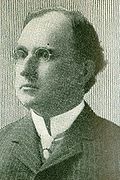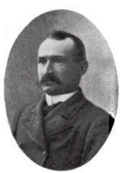| |||||||||||||||||
| |||||||||||||||||
 Results by county Morrison: 40–50% 50–60% Hunt: 40–50% 50–60% | |||||||||||||||||
| |||||||||||||||||
| Elections in Idaho |
|---|
 |
The 1902 Idaho gubernatorial election was held on November 4, 1902. Republican nominee John T. Morrison defeated Democratic incumbent Frank W. Hunt with 52.90% of the vote.

